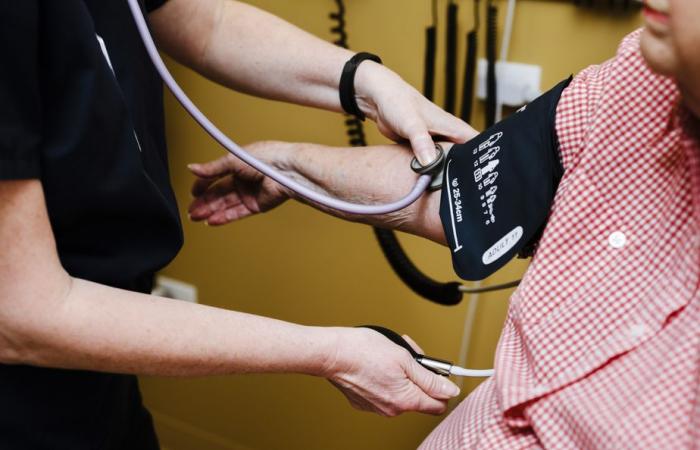Quebec is tightening the screws on family medicine groups (GMF) to increase access to patients. Time slots will be reserved for minor emergencies, funding will be linked to the availability of doctors, artificial intelligence is also called to the rescue.
Published at 5:00 a.m.
Time for minor emergencies
The Ministry of Health and Social Services (MSSS) published on Wednesday its new Funding and Professional Support Program for Family Medicine Groups (GMF) in which it introduces new rules.
Each GMF will now have to reserve 5% of its time slots for the minor health problems of its registered patients. That is to say, the clinic must be able to make availability for patients who will need a consultation, such as for an ear infection or a urinary infection, and prevent them from ending up in the emergency room.
The objective is to relieve congestion in emergencies and offer an alternative solution for less urgent cases. Conversely, a patient who presents to the emergency room for a minor health problem may also be redirected to their GMF. What changes is that the obligation for a GMF to have 5% of available beaches is linked to part of its financing.
Financing conditions
Moreover, 20% of the annual funding paid by Quebec to GMFs will be conditional on the achievement of two access indicators: 5% for emergencies and the availability of doctors, which is called in the jargon the “rate of ‘assiduity’. The attendance rate makes it possible to quantify the availability of a doctor towards his patients. It measures the proportion of visits by patients assigned to a doctor compared to all visits made in the network by these same patients.
Essentially, this establishes whether the family doctor is available for their registered patients. The attendance rate must reach 80% for the clinic to receive all of its funding. This indicator has been measured for several years, but had no effect on the financial envelope, it is explained. The 20% tranche of annual funding will now be paid on December 31 if the GMF has achieved the targets.
For the moment, the average attendance of family doctors reaches 89.6%. Quebec explains that by tightening the criteria, it will be able to ensure that the attendance rate is respected in each of the GMFs. The MSSS releases 300 million per year for the operation of some 400 GMFs in Quebec. Added to this is the 130 million for the Front Line Access Counter (GAP) agreement.
A relevance filter
Quebec is using artificial intelligence to apply a new “relevance filter” which will allow an initial sorting in the allocation of medical appointments. The information was also reported by The Press in November1.
The technology from the Quebec company Vitrai directs patients to the right professional – doctor, nurse, physio, pharmacist, social worker – by asking them a series of questions generated by artificial intelligence. Currently, the technology is deployed in around 70 clinics. A clinic in Quebec – which uses Vitrai – was notably able to offer 400 additional appointments in one month by directing the patient to the right service.
All GMFs in the province will have to use Vitrai by next year, it is indicated. This filter will be used in GMFs, but will also be integrated into online appointment booking platforms, such as the unique Vos Santé portal – an electoral commitment of the Coalition Avenir Québec –, which must be implemented next year. The use of Vitrai will cost Quebec 40 million over four years.
Disappointment among general practitioners
The Federation of General Practitioners of Quebec (FMOQ) says it is disappointed with the government’s choices, which did not accept their request to increase the funding allocated to GMFs2. According to the doctors’ union, the budget envelope of 300 million is no longer sufficient to cover rising inflation and increased costs, such as rent. This has the effect of limiting the GMF supply, specifies FMOQ spokesperson Stéphane Gosselin.
The FMOQ also expressed its fears to the MSSS regarding the use of the relevance filter. “We fear that the person will find themselves in a dead end. That is to say, if the technology tells her that she should not see a doctor, but a physiotherapist, well, do we ensure that she will be able to see him? It’s not yet clear,” he explains. The FMOQ did not specify to what extent it wanted the GMF funding envelope to be increased.
1. Read the column “An SME hired to manage health traffic”
2. Read the file “Closure of the Pointe-aux-Trembles Polyclinic: patients “with their mouths to water””






